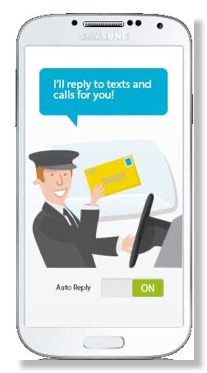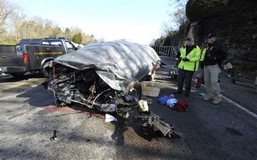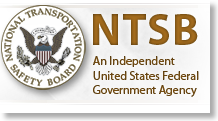Sprint Drive First: Kudos to Sprint for New Safety App

.Shortly after the car exceeds 10 mph – determined using GPS and cell tower triangulation – the mobile phone will be locked. If the driver is using the phone when Sprint Drive First engages, the call will end and the phone lock screen will appear. Anyone texting the driver will receive an automated message indicating the person they texted is driving. The message is customizable by the account holder.
A locked device displays a home screen with exit and emergency 911 buttons to override the app. Sprint Drive First can be overridden if the user is a passenger in a car, on a bus or train, but the parent or account holder can choose to receive notifications when the service is overridden.
Parents have a choice of programming up to five phone numbers to ring through when the phone is locked as well as allowing functionality of three apps, such as navigation, music or weather.
When the application no longer detects movement it unlocks and full device functionality resumes. Sprint Drive First takes into account stop-and-go traffic, so the driver needs to be sitting idle for a few minutes before it will unlock
CTIA Mum on NTSB Cellphone in Truck Recommendation
To the 50 states and the District of Columbia:
Enact legislation to prohibit cellular telephone use by commercial driver's license holders with a passenger-carrying or school bus endorsement, while driving under the authority of that endorsement, except in emergencies.
In its investigation, NTSB made this finding:

While CTIA recently had plenty of time to make 2 blog posts (1 2) responding to NAB’s latest tirade on the silly FM chip in cellphone issue, more than a week after the NTSB recommendation to ban cell phone use by truckers CTIA remains silent on the issue. (Note that your blogger has repeatedly agreed with CTIA on this relatively minor issue.) Indeed, the CTIA image machine was able to get the first blog post on the FM/cellphone issue out the very same day as NAB’s statement and the second the next day. Both with matching tweets!
The cellular industry does many good things in our society and can be generally proud of its public service record. But the issue of cell phone use in driving is a real public safety issue where CTIA has focused solely on texting and “inexperienced or novice drivers” -- putting it on the other side of the issue from both DOT and NTSB.
Perhaps CTIA feels that if it ignores the NTSB recommendation it will go away. Note that his view is not monolithic in the cellular industry. Sprint continues to be a sponsor of Oprah’s No Phone Zone program.
So, FCC and other CTIA members: Is the marginal revenue gained by ignoring distracted driving and lobbying against regulations to control it really worth it? Does it really have to diminish your other good works?
DOT video on dangers of distracted driving
Video from Oprah on distracted driving
UPDATE
Shortly after this post went up, we heard from CTIA:
Actually, we did have a statement. Here is a statement to attribute to John Walls, vice president of public affairs for CTIA--The Wireless Association:
"Accidents that involve any of the numerous driving distractions are unfortunate, and those resulting in loss of life are tragic. The wireless industry has been educating drivers about the dangers of distracted driving for more than a decade, and does not oppose legislation that restricts the use of wireless communication by drivers."
At the time of the blog post a search of the CTIA website for "NTSB" gave no hits at all. Nor was Mr. Walls' quote available on either the CTIA blog or under press releases. Indeed, a search for the words in the statement had not hits on the CTIA site strongly implying it was not publicly available.
So we welcome this statement that the industry "does not oppose legislation that restricts the use of wireless communication by drivers". However the current CTIA position statement on safe driving does not have Mr. Walls’ general concept of nonopposition to driver restrictions - it only deals with manual texting and “younger drivers”. Let’s hope that CTIA continues to move away from opposing safety-related restrictions and even actually supports the NTSB recommendation.




![Validate my RSS feed [Valid RSS]](valid-rss-rogers.png)

